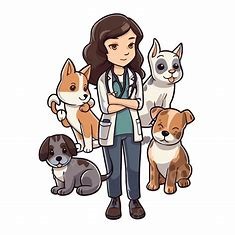Female Veterinarians Shaping Innovations in Animal research and Healthcare
Dr. Pallavi Khajuria(Ph.D. Veterinary Biochemistry)
The progression of female veterinarians in advancing animal research and healthcare has encountered its share of obstacles. Historically, veterinary medicine carried the label of a male-dominated profession, presenting women with hurdles in entering and gaining recognition within the field. Nevertheless, with the evolution of societal attitudes, an increasing number of women have chosen paths in veterinary science, slowly dismantling gender-based barriers. Presently, female veterinarians stand not just as equal contributors but as pioneers driving transformative changes in the field.
List of some of the pioneer female veterinarians who are shaping Innovations in Animal research and Healthcare
- Sarah Boston:

She graduated from the Western College of Veterinary Medicine in Saskatoon, Saskatchewan, Canada, in 1996. A surgical oncologist and author, Dr. Boston has made impactful contributions to veterinary surgery, particularly in the field of cancer treatment for animals.She completed a rotating internship at the University of Guelph the following year. She then returned to Western Canada for three years of general practice before attending the University of Guelph for a residency and DVSc in small animal surgery. She became board-certified with the American College of Veterinary Surgeons in 2004. Sarah then completed a Fellowship in Surgical Oncology in 2005. She is an ACVS Founding Fellow of both Surgical Oncology and Oral & Maxillofacial Surgery.
- Susan Kelleher:
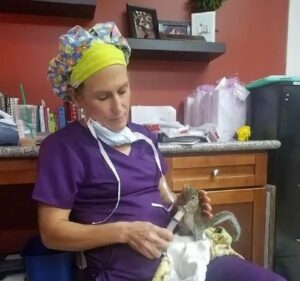
She is a 51-year-old American veterinary doctor and reality TV star. She is famous for her cast on ‘Dr. K’s Exotic Animal ER’ show that airs in Net Geo World. The show follows the unfolding in Broward Avian, and Exotic Animal Hospital as Dr. Susan and her staff strive to attend to exotic animals.
- Patricia O’Connor: She became a vet during a time when female vet school graduates were extremely rare. Her work helped inspire a new crop of women veterinarians, but especially those interested in treating zoo animals, as she was the first female zoo veterinarian. O’Connor founded the American Association of Zoo Veterinarians and practiced as the Chief Veterinarian at New York’s Staten Island Zoo for 28 years. O’Connor was hired at the zoo on an interim basis during World War II, expecting to be replaced when the war ended and male soldiers returned to the workforce. However, her work at the zoo was invaluable, and although her primary responsibility was medical care for the animals, she also served as a mammal and bird curator, and developed educational programs for the public. In 1955, O’Connor published a comprehensive 465-page bibliography of the most reputable sources on wild animal diseases: “A Bibliography of References to Diseases of Wild Mammals and Birds.” This resource was the first of its kind and is still used today as a launchpad for other researchers.
- Mary Knight:
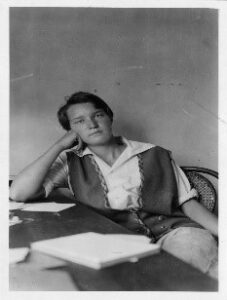
Another pioneer for women veterinarians, Dr. Mary Knight Dunlap founded the Women’s Veterinary Association to create a supportive environment for women veterinarians throughout their careers. Dunlap wrote monthly bulletins for members, and the association worked to maintain high standards in veterinary medicine, and to act in an advisory capacity to women veterinary students and professionals. The association also went on to advocate for equal pay, parental leave, management, and leadership, and developed an anti-harassment policy. Although the organization no longer exists in the same form, it now functions as a foundation providing scholarships to veterinary students. Outside of this work, she was a deeply passionate veterinarian, running a house call practice, caring for zoo animals, working in a toxicology department, and writing numerous publications. While Dunlap was an excellent veterinarian, her lasting impact is on the fight for gender equity in the veterinary profession.
5.Temple Grandin:
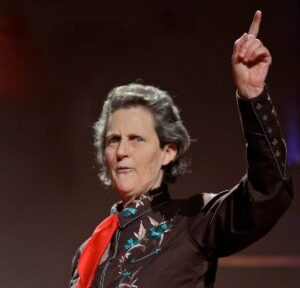
She is known for her autism activism, but what many often forget is that she is a renowned animal behaviour scientist and animal rights activist, as well. Grandin is a prominent proponent for the humane treatment of livestock for slaughter and has designed handling systems that minimize pain and fear for animals. She is also currently a faculty member with Animal Sciences in the College of Agricultural Sciences at Colorado State University and has written over 60 scientific papers on animal behaviour. Grandin has also published a number of books, exploring autism, animals, and the overlap between the two topics. Titles like “Thinking in Pictures” and “Animals Make Us Human” are pinnacles of Grandin’s work, teaching humans how to best care for animals, and what they can teach us about human behaviour.
6.Dr.Cindy Otto:
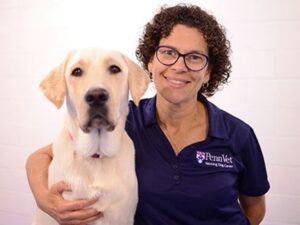
She serves as the inaugural director of the Penn Vet Working Dog Centre at the University of Pennsylvania School of Veterinary Medicine. Established in 2012, the centre emphasizes education, research, and the collection of data to enhance the well-being of working dogs. Otto’s interest in working dog training dates back to her early education, but it was the aftermath of 9/11 that profoundly motivated her to establish the centre, aspiring to train dogs for the betterment and safety of the world. Following the 9/11 attacks, Otto played a crucial role as part of the FEMA (Federal Emergency Management Agency) Task Force, providing veterinary care for the search and rescue dogs deployed at Ground Zero. Drawing from this experience, she continues her dedication to training and caring for dogs at the centre. These canines undergo training to prevent terrorism, collaborate with first responders to detect explosives and narcotics, participate in disaster or accident rescues, and identify medical conditions such as cancer and diabetes. Otto’s team at the centre also engaged in a COVID-19 detection study, utilizing dogs to sniff out the virus.
A board-certified veterinarian, Otto has made significant contributions to the field, boasting over 60 published journal articles, 10 book chapters, and delivering lectures on emergency medicine, disaster medicine, and working dogs.
- Marty Becker: “America’s Veterinarian,” has spent his life working toward better health for pets and the people who love them. He is the founder of Fear Free, which works to prevent and alleviate fear, anxiety, and stress in pets by inspiring and educating the people who care for them. This includes veterinary and other pet professionals as well as pet parents through FearFreeHappyHomes.com and animal shelter and rescue group staff and volunteers through FearFreeShelters.com. Fear Free and Dr. Becker partnered with Meredith Corporation, the nation’s largest brand-powered food, lifestyle, and entertainment media company, to introduce Happy Paws magazine. Written by veterinary and pet professional experts including board-certified veterinary behaviorists, Happy Paws assists pet owners in providing their pets with the physical and emotional care they need to live happier, healthier, and fuller lives.
- Jane Goodall :
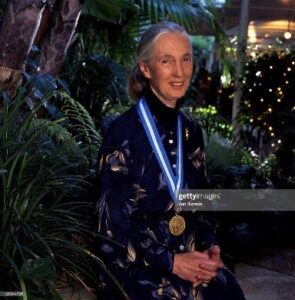
Dr. Goodall’s contributions to the field of primatology are immense. In 1960, she began her groundbreaking research on wild chimpanzees in Gombe, where she conducted a long-term study of their behavior, social structures, and interactions. Her work challenged prevailing scientific beliefs at the time, as she discovered that chimpanzees use tools, have complex social structures, and display behaviors previously thought to be unique to humans.


